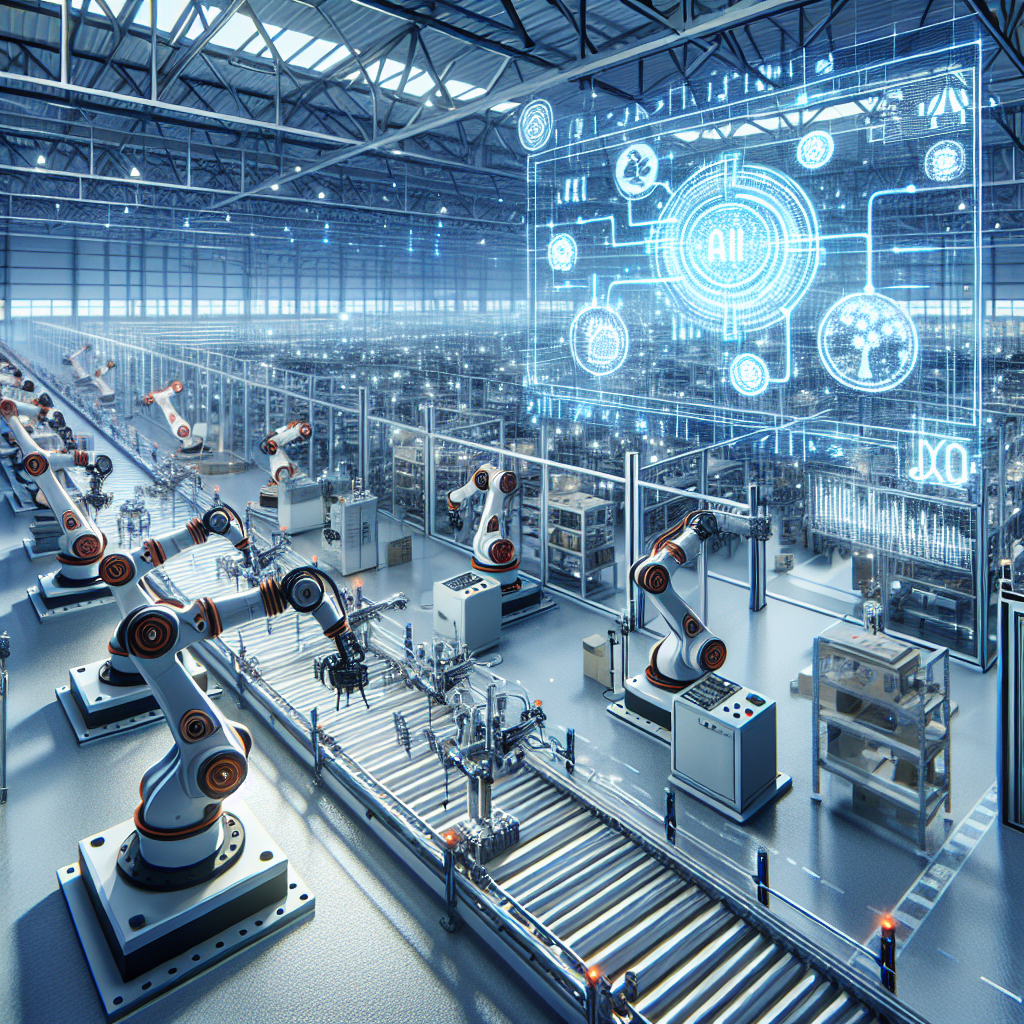The Role of AI in Supply Chain Management in Manufacturing
In recent years, artificial intelligence (AI) has been transforming the way businesses operate, particularly in the realm of supply chain management. In the manufacturing industry, AI is playing a significant role in optimizing processes, increasing efficiency, and reducing costs. This article will explore the various ways in which AI is being utilized in supply chain management in manufacturing and how it is revolutionizing the industry.
1. Predictive Maintenance
One of the key applications of AI in supply chain management in manufacturing is predictive maintenance. By analyzing historical data and real-time sensor readings, AI algorithms can predict when a machine is likely to fail and alert maintenance teams to take preemptive action. This not only reduces downtime but also helps in avoiding costly repairs and replacements.
2. Inventory Management
AI is also being used to optimize inventory management in manufacturing. By analyzing data on sales trends, production schedules, and supplier lead times, AI algorithms can accurately predict demand and suggest optimal inventory levels. This helps in minimizing stockouts, reducing excess inventory, and improving overall supply chain efficiency.
3. Demand Forecasting
Demand forecasting is another area where AI is making a big impact in manufacturing supply chain management. By analyzing historical sales data, market trends, and external factors such as weather patterns, AI algorithms can predict future demand with a high degree of accuracy. This allows manufacturers to adjust production levels accordingly and avoid overproduction or underproduction.
4. Supplier Management
AI is also being used to streamline supplier management in manufacturing supply chains. By analyzing supplier performance data, pricing trends, and quality metrics, AI algorithms can help manufacturers identify the best suppliers for their needs and negotiate better terms. This not only improves the quality of inputs but also reduces costs and enhances overall supply chain resilience.
5. Autonomous Vehicles
AI-powered autonomous vehicles are revolutionizing the way materials are transported within manufacturing facilities. By using sensors and real-time data, autonomous vehicles can navigate through complex environments, avoid obstacles, and optimize routes for maximum efficiency. This not only reduces the need for manual labor but also improves safety and reduces the risk of accidents.
6. Quality Control
AI is also being used to enhance quality control processes in manufacturing supply chains. By analyzing data from sensors, cameras, and other sources, AI algorithms can detect defects in real-time and alert operators to take corrective action. This helps in reducing waste, improving product quality, and ensuring customer satisfaction.
7. Supply Chain Optimization
Overall, AI is playing a crucial role in optimizing supply chain management in manufacturing. By analyzing vast amounts of data, identifying patterns, and making predictions, AI algorithms can help manufacturers make informed decisions, reduce costs, and improve efficiency. From predictive maintenance to demand forecasting to autonomous vehicles, AI is transforming the way manufacturing supply chains operate.
FAQs
Q: What are the main benefits of using AI in supply chain management in manufacturing?
A: Some of the main benefits of using AI in supply chain management in manufacturing include improved efficiency, reduced costs, increased accuracy in demand forecasting, optimized inventory levels, enhanced quality control, and better supplier management.
Q: How can manufacturers implement AI in their supply chain management processes?
A: Manufacturers can implement AI in their supply chain management processes by investing in AI-powered software and tools, training their employees to use AI effectively, and collaborating with AI experts and vendors to develop customized solutions for their specific needs.
Q: Is AI replacing human workers in manufacturing supply chains?
A: While AI is automating certain tasks in manufacturing supply chains, it is not replacing human workers entirely. Instead, AI is complementing human labor by optimizing processes, improving efficiency, and reducing the risk of errors.
Q: What are the challenges of implementing AI in supply chain management in manufacturing?
A: Some of the challenges of implementing AI in supply chain management in manufacturing include the high cost of AI technologies, the need for data accuracy and quality, the requirement for skilled personnel to operate AI systems, and the potential resistance from employees to adopt AI-driven processes.
Q: What is the future of AI in supply chain management in manufacturing?
A: The future of AI in supply chain management in manufacturing is bright, with continued advancements in AI technologies, increasing adoption rates among manufacturers, and ongoing innovation in AI applications. AI is expected to play an even more significant role in optimizing supply chain processes, enhancing decision-making, and improving overall efficiency in the manufacturing industry.

